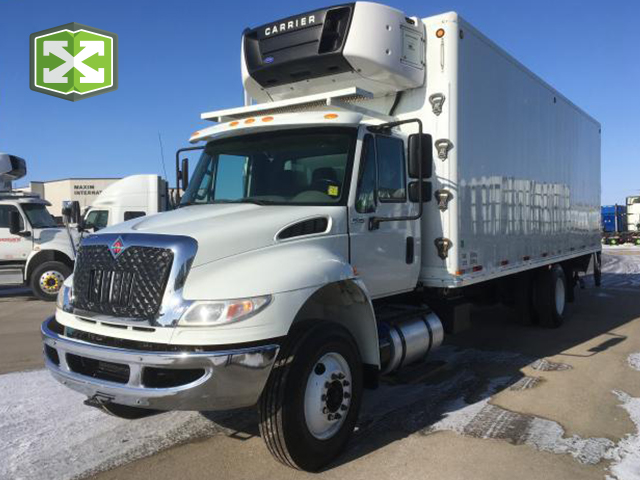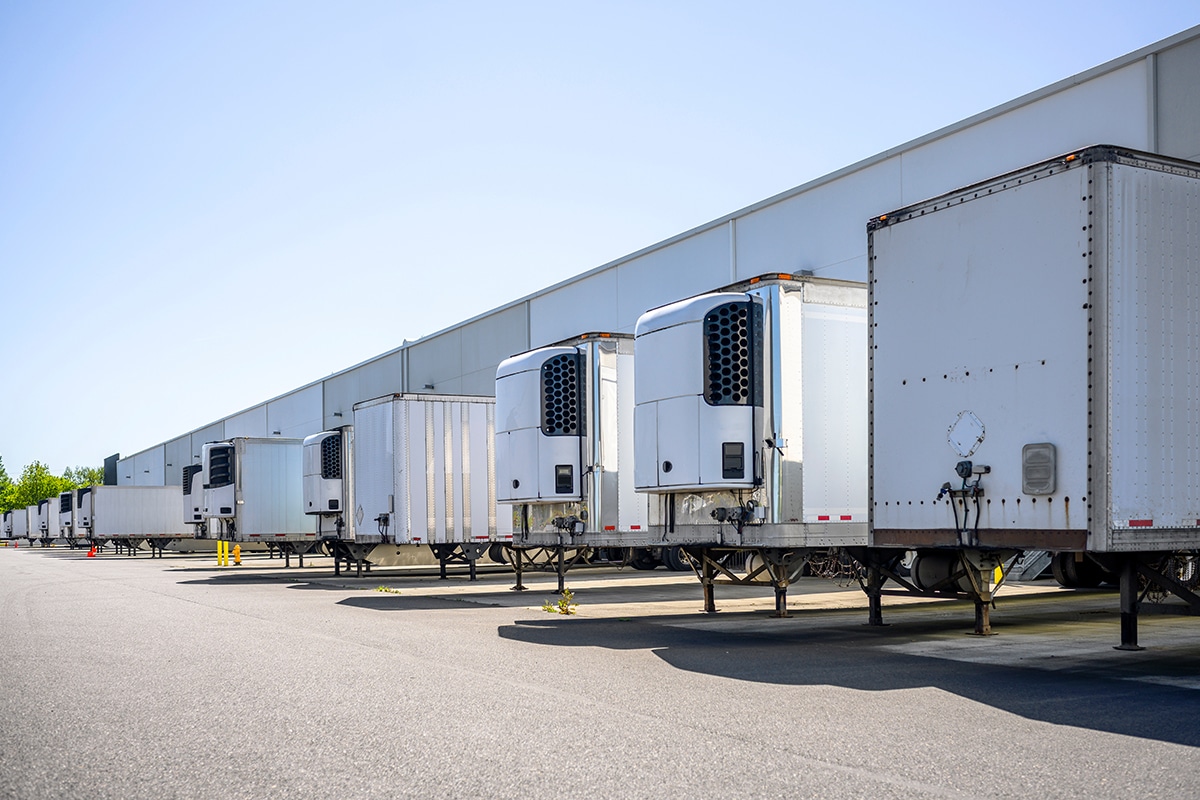Choosing the Right Transportation Refrigeration System for Your Fleet
Selecting an appropriate transport refrigeration system for your fleet is a vital decision that can dramatically affect functional effectiveness and item stability. It requires a comprehensive understanding of your certain refrigeration requirements, consisting of temperature level demands and shipment schedules.
Comprehending Your Refrigeration Demands
When selecting a transportation refrigeration system, comprehending your specific refrigeration requirements is vital to guaranteeing item quality and compliance with market standards. Various variables should be taken into consideration to establish the most ideal system for your operation. These include the sort of items being transported, their temperature demands, and the period of transit.
For perishable items, such as fresh produce or pharmaceuticals, exact temperature level control is vital. Comprehending the temperature level array required for each and every item enables the option of a system that can maintain those conditions continually. Additionally, think about the regularity of distributions and the distance took a trip; longer trips may require systems with improved insulation or backup power choices to stop temperature variations.

Additionally, the ability of the refrigeration system must line up with your tons dimension. By extensively evaluating these aspects, you can make certain that your picked transportation refrigeration system properly meets your operational requirements and maintains item integrity.
Kinds Of Transport Refrigeration Solution
Choosing the best sort of transport refrigeration system is crucial for making certain the secure transit of temperature-sensitive items. There are a number of systems readily available, each developed to satisfy specific demands and applications.
These systems are typically favored for their effectiveness and reduced initial expenses. One more choice is the main refrigeration system, which serves numerous compartments or automobiles from a single compressor device.
In addition, there are self-supporting refrigeration units that integrate the compressor and evaporator in one plan. These units are optimal for smaller sized vehicles or when space is restricted. For specialized applications, such as carrying drugs or perishables, cryogenic refrigeration systems may be made use of, using liquid nitrogen or carbon dioxide to keep ultra-low temperature levels.
Lastly, hybrid refrigeration systems that combine electric and diesel power are becoming significantly prominent, offering versatility in energy use and lowering ecological influence. Understanding these various kinds allows fleet drivers to make educated choices customized to their specific operational demands.
Key Functions to Take Into Consideration
Just how can one guarantee that a transportation refrigeration system meets all operational needs? To attain this, numerous essential attributes should be carefully evaluated. First of all, temperature level control is important; systems ought to offer exact temperature setups to accommodate various items, varying from iced up products to perishable things.
Energy effectiveness is one more crucial consideration, as it impacts operational costs. Try to find systems that make use of sophisticated modern technology, such as variable speed compressors, to optimize energy use without compromising efficiency.
One more function to evaluate is the integrity and sturdiness of the equipment. Solutions constructed from high-grade materials and made for durability versus rough problems will certainly decrease upkeep expenses and downtime.
Moreover, the convenience of upkeep and availability of components can dramatically influence functional effectiveness (thermo king truck refrigeration units). Attributes this website like modular styles or remote surveillance abilities can simplify service processes
Lastly, compatibility with existing fleet monitoring software application can boost tracking and reporting procedures. By concentrating on these essential attributes, fleet operators can make sure that their transport refrigeration systems not just fulfill current needs yet also adjust to future demands.

Budgeting for Refrigeration Solutions
Evaluating key features of transport refrigeration systems is just one part of ensuring functional performance; budgeting for refrigeration options is similarly essential. A well-structured budget not just encompasses the first acquisition price but additionally thinks about long-lasting operational prices, including energy intake, upkeep, and potential repair work demands.
When developing a budget plan, click to read more fleet managers need to first assess the complete expense of ownership (TCO) This consists of not only the procurement costs yet likewise recurring costs connected to sustain effectiveness and the resilience of the refrigeration devices. Choosing systems with greater energy performance scores may generate considerable savings gradually, reducing ahead of time costs.
In addition, fleet operators need to account for possible scalability. As companies expand, the refrigeration needs may change, necessitating upgrades or additional systems. Preparation for these future expenditures can prevent economic strain.
Funding options can likewise have a peek at this site play an essential function in budgeting. Leasing, lendings, or outright acquisitions each have distinctive financial ramifications, and recognizing these can help in making a notified choice. Inevitably, an extensive budget that thinks about both future and immediate needs makes sure that transportation refrigeration systems add favorably to the overall operational effectiveness of the fleet.
Upkeep and Assistance Alternatives
In the world of transportation refrigeration systems, efficient maintenance and support alternatives are essential for guaranteeing optimal efficiency and long life. Normal upkeep is important to stop malfunctions and keep the honesty of temperature-sensitive freight. It is suggested to develop a regular examination schedule with certified technicians who can do essential checks and fixings on refrigeration devices.
Assistance alternatives must consist of a robust service agreement, covering both routine upkeep and emergency situation fixings. This ensures that your fleet has access to prompt assistance, decreasing downtime and keeping functional effectiveness. Numerous producers offer comprehensive assistance bundles that include training for your staff, enabling them to perform standard troubleshooting and upkeep tasks.
Furthermore, making use of remote tracking innovation can enhance your upkeep method - thermo king truck refrigeration. These systems offer real-time information on temperature level and efficiency, permitting proactive actions prior to issues rise. Purchasing training and modern technology not only boosts your fleet's integrity but additionally prolongs the life expectancy of your refrigeration systems
Inevitably, a calculated approach to upkeep and support will certainly safeguard your financial investment and guarantee that your transportation refrigeration systems operate at peak performance, delivering constant results for your service.

Verdict
Finally, picking the ideal transportation refrigeration system for a fleet demands a detailed evaluation of specific refrigeration demands, system kinds, and vital functions. Prioritizing operational efficiency, power usage, and maintenance considerations is essential for ensuring integrity. In addition, cautious budgeting and planning for future scalability will add to the long-lasting success of the refrigeration method. Eventually, a knowledgeable decision will certainly improve product honesty and maximize general logistics operations within the fleet.
Selecting an ideal transport refrigeration system for your fleet is a crucial choice that can dramatically affect operational effectiveness and item stability.When picking a transport refrigeration system, recognizing your particular refrigeration demands is critical to ensuring product top quality and compliance with market standards. By extensively evaluating these variables, you can guarantee that your selected transportation refrigeration system efficiently fulfills your operational requirements and keeps item integrity.
Eventually, a comprehensive budget plan that takes into consideration both immediate and future needs guarantees that transport refrigeration systems add favorably to the overall operational performance of the fleet.
In verdict, selecting the suitable transportation refrigeration system for a fleet demands a comprehensive examination of particular refrigeration demands, system kinds, and essential functions.